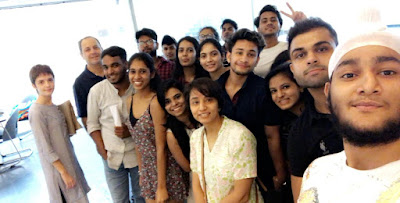Among many current issues
happening around us, I have chosen to write about this subject, since we are
still showing ignorance about it.
Ruby got married when she
was 19. Like every other girl in India, Ruby thought that her husband would be
her protector. She was overwhelmed with tears of joy, as she considered her
dream fulfilled. But things took a different turn.
On her first night of
marriage, instead of receiving care and love, Ruby was forced and assaulted.
She was raped seven times on that first night.
Why did the concept of
marriage come into existence?
The whole concept of
marriage was created just to determine the paternity of children in ancient
India. Its essential components were intercourse, procreation, and living
together with mutual responsibilities for the care of offspring. The
institution of marriage gave respectability to women and enhanced their
personal happiness.
Slowly, it enjoined on the
wife the duty of attendance, obedience to and veneration for the husband, and the
obligation to live with him wherever he might choose to reside.
Women had to be careful
about what they wore and said, where they went. They had to be diffident and
‘modest.’ In a hundred little ways, men were made to feel intelligent, good,
powerful, knowledgeable, right, smart, and attractive by the women in their
lives. This whole attitude gave rise to many social evils, and one of them is
marital rape.
WHAT IS MARITAL RAPE?
Marital rape is the act of
sexual intercourse with one’s spouse without the spouse’s consent. It is a form
of domestic violence and sexual abuse.
In India, with its patriarchal
mindset, women post-marriage are considered to be the property of men, with no
independence over their bodies. Once married, men think that any sort of sex they
indulge in with their wives is normal. In such a marriage, a wife’s
relationship with her husband is to be subjected to physicality and his bodily
pleasures, rather than being touched with the eternal bliss and bloom of the
vows the couple took. The very steps of their lives with each other are
defeated.
Right from our upbringing,
with a high illiteracy rate, poverty, extreme religious beliefs, and the very
‘sanctity’ of marriage, women are taught to respect men in their families and
are expected to be more responsible for maintaining the decorum of the family.
They are expected to be modest and responsible from childhood. On the other
hand, boys are brought up in such a way that either their mothers or sisters
are responsible for their daily chores. Right from this stage, domination comes
into the minds of boys and girls at a very tender age. Once this is inculcated
in their blood, most women do not even know that the option of NO exists, even
after marriage—and especially in bed. In some cases, women do not even
know that they have the right of an option when it comes to sex, as they are
always inclined to satisfy their husbands’ every desire.

This brings us to a
question: Is marriage in India a contract for legal sex, among other
things, where a man doesn’t need to ask for permission and is free to impose
himself on a wife?
For a minute, let us forget
about rape that happens outside of marriage. What are we doing to prevent rape
after marriage? Are our girls educated about their rights? Oh, sorry, they are in
fact educated the opposite. Oh, sorry, are girls even educated?
But can there be two
yardsticks to define rape—the rape of an unmarried woman and that of a married
woman? Is it acceptable to discriminate against a woman just because she is
married to the man who raped her?
A lot of social movements
have been started and a lot of work is being done to change the existing law to
punish rape in India, but marital rape is still not discussed and very little
is being done. When rape outside of marriage is difficult to prevent, it seems that
many forget about marital rape. ‘We have a lot of wolves in the street but
sometimes they live inside our house under sheep's skin.’
There is also a need to
educate the masses about this crime, as the real objective of criminalizing
marital rape can only be achieved if society acknowledges and challenges the
prevailing myth that spousal rape is inconsequential.















